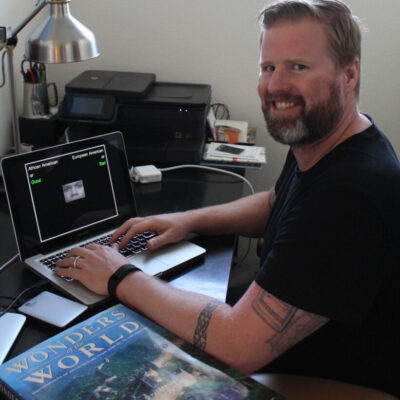Bradley Hughes Humanities and Social Science
Looking Outward: Awe Reduces Bias and Prejudice
Implicit bias refers to a prejudiced attitude or stereotype activated outside of conscious awareness. While there has been a great deal of research examining factors that affect implicit attitudes, there is a dearth of research on the effects of emotional statesparticularly positive emotionson implicit bias. I seek to address this gap by examining the influence of awe on implicit bias. Awe is an emotional response to vast stimuli that transcend current frames of reference and stimulate a need for the formation of a new cognitive framework to accommodate the experience. The experience of awe is associated with more systematic processing, present moment awareness, outward focus, and feelings of belonging to broader groups. These attributes lead to the hypothesis that experiencing awe will be associated with less implicit bias. This study will be an important contribution to research examining the effects of positive emotions on automatic processes and to the psychological literature. Understanding how awe can decrease implicit bias represents an important step toward reducing discriminatory behavior.
Message To Sponsor
I spent the majority of my adult life observing human behavior as a bartender. This motivated a return to school to study psychology at age 35, which has presented many challenges, in particular, finding a balance between family, school, and work. Without a SURF fellowship, I would have spent the summer working in a restaurant, once again putting my scholastic goals on hold. Instead, I am able to devote this summer to gaining experience in psychological research and pursuing a line of research of my own. What an amazing opportunity to learn and grow while demonstrating my abilities as a researcher and preparing for graduate school, the next step in this fantastic journey. I am grateful to SURF and the JSB Fund donors to allow me to be able to spend this summer researching and continuing to pursue my academic goals. Thank you!